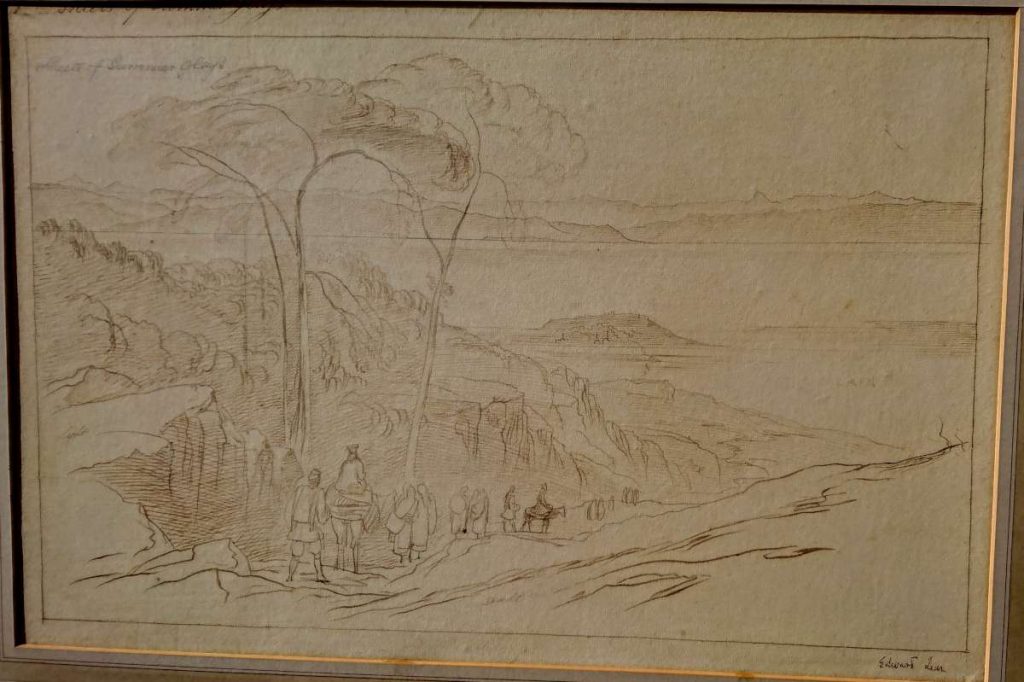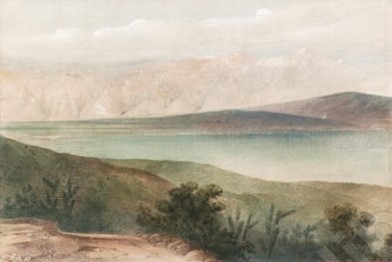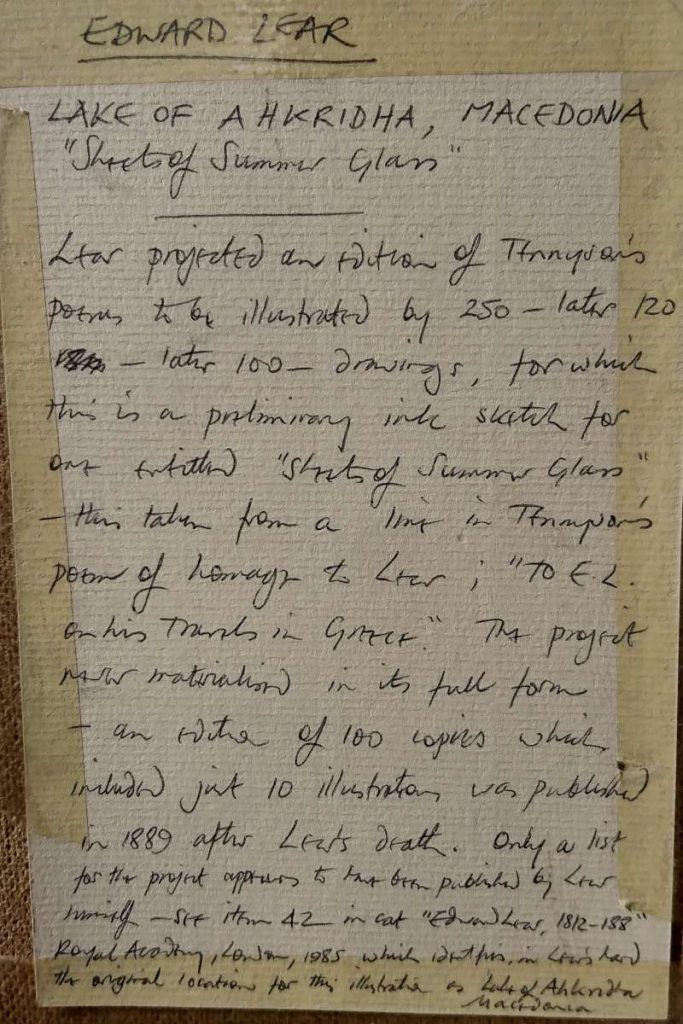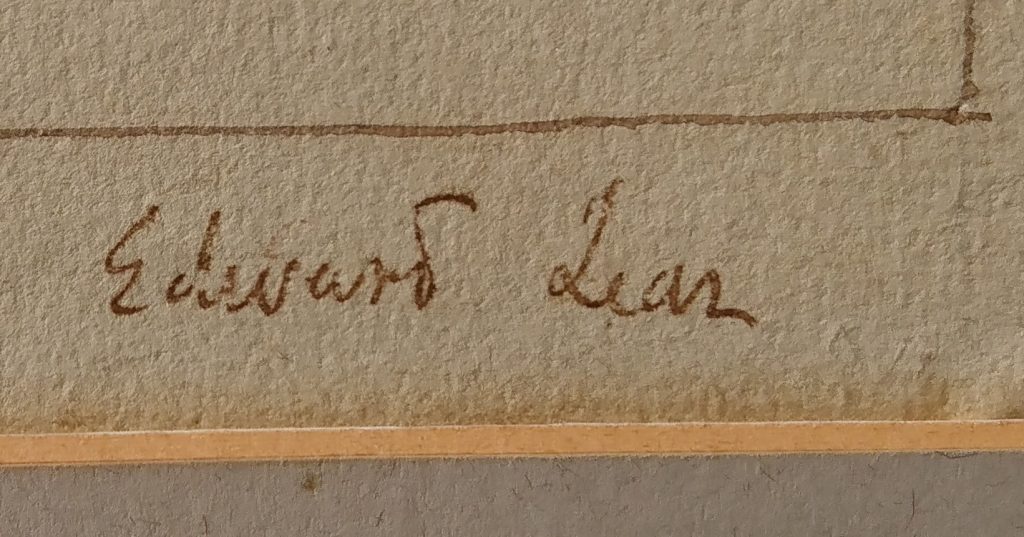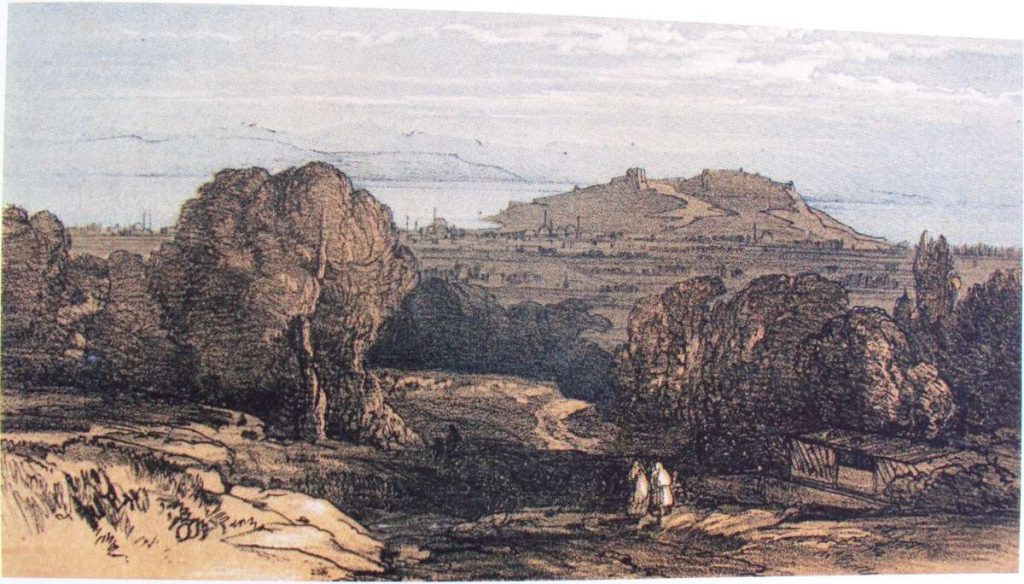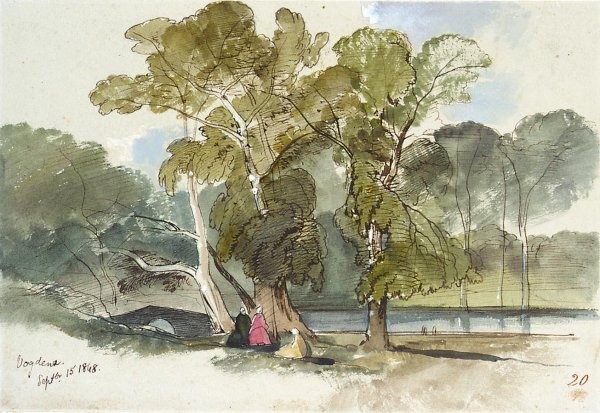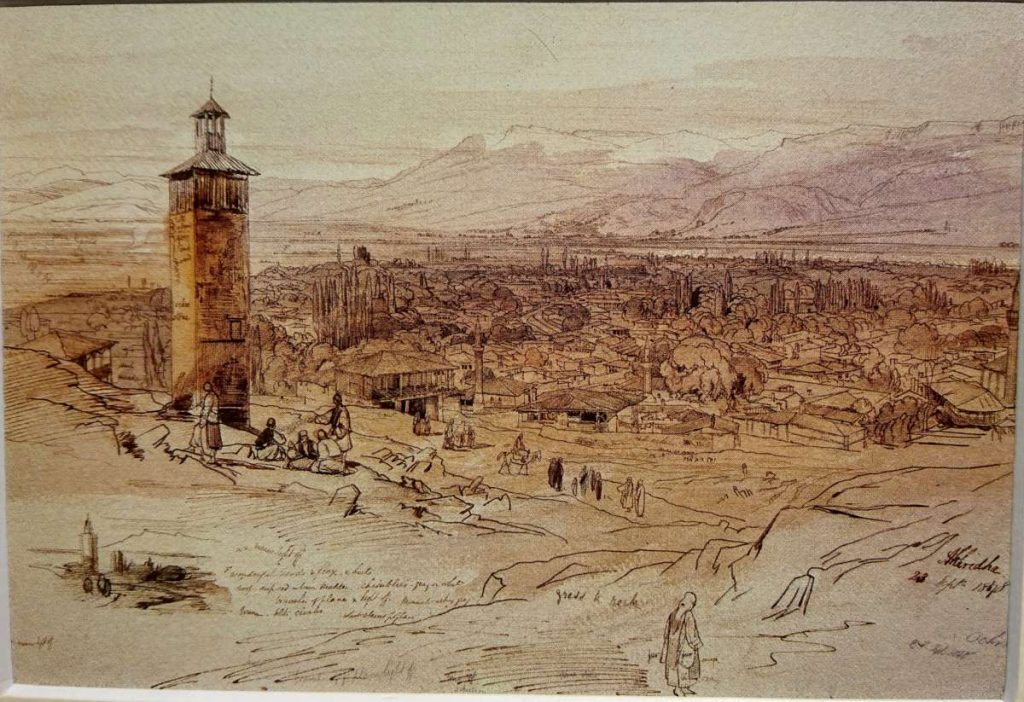Born in Highgate (London), England on 12.05.1812 ( as 20th from 21 children), died in San Remo, Italy on 29.01.1885, Edward Lear was an English artist, illustrator, author and poet , renowned for literary nonsense in poetry and prose. His father was a failed stockbroker, and his mother rejected him, such that he was brought up largely by his sister Ann. He spent his early years first as a draughtsman for the Zoological Society, then as an artist for the British Museum. In 1832 he was employed by the Earl of Derby to make colored drawings of the rare birds and animals in the menagerie at Knowsley Hall. The Earl also allowed Lear the means to travel widely. He published accounts of his trips to Italy (1846), Albania and Illyria (1851), Calabria (1852), and Corsica (1870). He also visited the Holy Land and Greece. In 1845, he was a drawing teacher to her Majesty Queen Victoria of England.
Lear is chiefly remembered for his nonsense poetry, the first volume of which was written for his patron’s grandchildren in 1846 and was simply entitled A Book of Nonsense. His poetry was henceforth marked by an air of ludicrous fantasy, as well as a unique inventiveness. A deep sense of sadness can also be traced in his nonsense verse. This melancholy was a reflection of the life of the writer, who, despite the support of friends such as Tennyson’s wife Emily, suffered from depression and loneliness. Since his death, appreciation of his artistic work, the watercolors in particular, has risen.
Edward Lear visited Macedonia in the autumn 1848. He actually traveled through Greece toward Constantinople, but his journey took an unexpected turn in the wild territory deep in the Ottoman empire. He passed through Ohrid, Prespa, Bitola, Debar and went forward deeper into Albania. His Macedonian trip is described in detail in his book “Edward Lear in Albania – Journals of a landscape painter in the Balkans” from 1851. The complete list of his Macedonian drawings and watercolors can be found in the Harvard University Library, Cambridge, MA, USA. One large Drawing entitled “Sketch of Summer Glam – Lake Aechida , Macedonia” is in the collection of the author of this lexicon.
